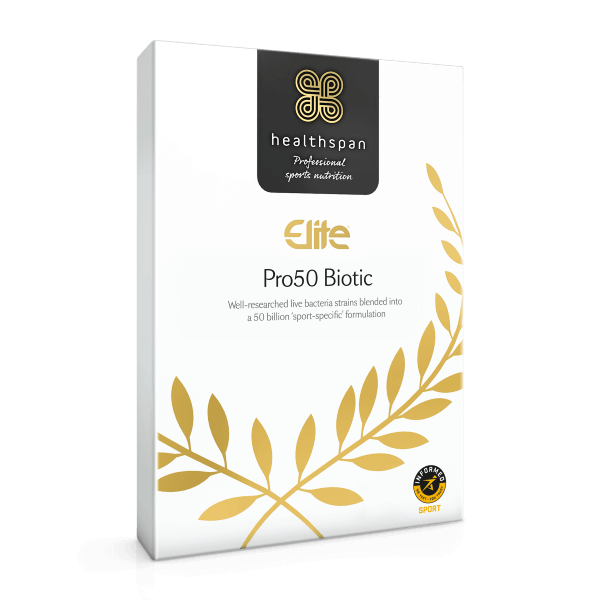From avoidance of gastrointestinal problems to improved immunity and nutrient absorption, probiotics can help athletes in a number of ways. Sports Nutritionist Rob Hobson explains.
Probiotics can help maintain the balance of 'good' and 'bad' bacteria in the gut – collectively known as the microbiota.
Athletes have varying gut microbiota compositions that relate to their activity level compared to those who do only a little exercise. These differences appear to be linked primarily to the training volume and amount of protein an athlete consumes. Whether these differences in gut microbiota composition affect the efficacy of probiotics is still unknown.
Here are the top four areas where probiotics can help athletic performance.
1. Reduction in gastrointestinal issues
"Athlete health can be affected by numerous factors such as intense and extensive training, lack of rest, frequent travel and compromised nutritional intake," says Wendy Martinson OBE, Registered Dietitian. "However, a study investigating the effect of probiotic supplementation compared to placebo, on the gastrointestinal symptoms of 141 marathon runners, found that there was a shortening in the duration of gastrointestinal symptom episodes."1
It may be beneficial to take a course of probiotics a couple of weeks before travelling overseas for a competition. The advice to athletes suspected to be immunosuppressed due to their heavy training schedule is to consider probiotic supplements.
Martinson agrees. "A study on elite rugby union players found that a probiotic mix containing three strains of bacteria at a dosage of 3 billion CFU significantly reduced the number of gastrointestinal episodes compared to placebo."2
2. Improved immunity
Immunity seems to be the focus behind much of the recognised use of probiotics among athletes. Endurance athletes are more prone to upper respiratory tract infections (URTI) due to strenuous training sessions – these athletes are at greater risk of immunosuppression.
In terms of URTI, several well-designed clinical trials investigated the effects of probiotics in athletes. They showed that supplementation might lead to fewer days and reduced severity of URTI.3

Pro50 Biotic
'Friendly' bacteria specifically chosen for competing athletes
- 50 billion live bacteria
- Five well-researched strains
- Supports the protective intestinal microflora in the gut
3. Bioavailability of nutrients
The primary function of the gut is to digest food and absorb nutrients. Probiotics in the diet may help to increase the bioavailability of nutrients from food. In athletic populations, specific probiotic strains can increase the absorption of key nutrients such as amino acids from protein, and affect the pharmacology and physiological properties of multiple food components.4
4. Improved performance
Although probiotics will not improve sporting performance directly, studies have shown that there are multiple secondary benefits. Enhanced recovery from fatigue, improved immune function and the maintenance of a healthy gut can improve general wellbeing, which in turn could improve performance.
Probiotics may well be of benefit to athletes and in particular endurance athletes. The main benefit seems to lie in immunity, and it also seems the impact on overall health and wellbeing has a secondary effect on performance rather than directly influencing it.










